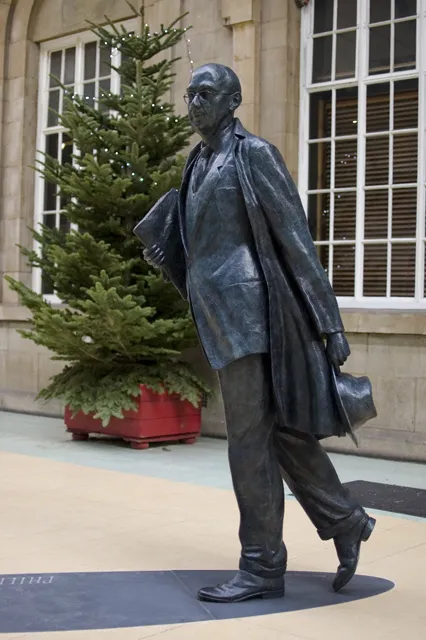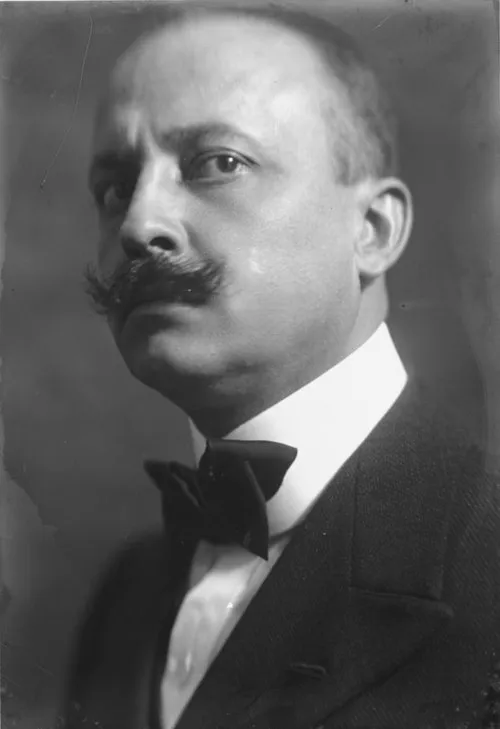
Name: Philip Larkin
Birth Year: 1922
Death Year: 1985
Nationality: English
Profession: Poet, author, and librarian
1985 – Philip Larkin, English poet, author, and librarian (b. 1922)
On a dreary day in December 1985, the literary world mourned the loss of one of its most poignant voices Philip Larkin. A poet who captured the essence of English life with stark honesty and unflinching introspection, Larkin's journey to acclaim was anything but conventional. Born in 1922, he spent his formative years in Coventry, England a city that would later be irreparably transformed during World War II. Perhaps this backdrop of destruction and rebuilding planted the seeds for his often cynical yet deeply insightful reflections on society and human experience.
His early years were marked by a love for literature, fostered by an intelligent family that encouraged exploration. Larkin initially sought to become a writer; however, the realities of financial necessity led him down an unexpected path into academia and librarianship. Ironically, it was within the dusty stacks of libraries where he would find his own voice amidst shelves filled with works from others.
Larkin's career began to take shape when he published his first major collection, "The North Ship," in 1945. This volume showcased a young poet grappling with existential themes yet it was not until "The Whitsun Weddings" released in 1964 that he truly made waves. This collection resonated across England, depicting everyday life through Larkin's trademark blend of melancholy and clarity. His words felt as if they had been pulled directly from the hearts of ordinary people living unremarkable lives filled with quiet despair.
Despite this success, Larkin remained skeptical about fame and public persona. Who knows what drove him to such a reclusive lifestyle? He resisted opportunities for more commercial engagements; instead, he chose to retreat into solitude at his beloved library at Hull University a place where he worked tirelessly as head librarian while penning poems that would change English literature forever.
In "An Arundel Tomb," one of his most famous poems, Larkin explores themes such as love and mortality through an image of two effigies lying side by side: “Side by side their feet are torn / And would still be.” The stark imagery hints at an enduring bond yet acknowledges life's inevitable decay a duality that became central to much of Larkin’s work.
As readers delve deeper into his poetry collections such as "High Windows" (1974) they encounter verses rife with irony and bitterness juxtaposed against moments of surprising beauty: “What will survive is what will endure.” Here lies perhaps one major aspect defining Philip Larkin's legacy; there exists within each line both celebration and critique reflecting not just personal beliefs but broader societal norms too.
Larkin did not shy away from exploring complex topics like religion or love . Critics argue that these explorations reveal how profoundly detached he felt from many aspects associated with traditional values ironically cultivating admiration among those seeking authenticity amid societal constructs! Despite being known primarily for poetry though…and despite acknowledging himself as ‘unpoetic,’ his influence extended far beyond mere stanzas on pages…
The transition between public recognition versus private turmoil can be exemplified further through various interviews conducted over time the poet often expressed discomfort around celebrity status while simultaneously grappling internally regarding personal interpretations surrounding fame itself! In press conferences following successful releases or accolades bestowed upon him it was always revealing how discomforting recognition appeared against contextually heightened expectations placed upon creatives!
Even after winning numerous awards including prestigious accolades like The Queen’s Gold Medal for Poetry or being named Poet Laureate , Philip remained anchored firmly within mundane realities: working tirelessly each day navigating paperwork amidst bookish silence echoing softly around him! Perhaps therein lies true brilliance: weaving poetic insights seamlessly throughout everyday experience rather than merely glorifying grandiosity associated oftentimes unjustly tied solely unto celebrated figures!
The vividness captured within lines such as “Nothing like death” resounds even today… For who could forget how hauntingly relatable those sentiments are? Just imagine standing beneath vast skies pondering life's transient nature while holding onto small fragments left behind the very same struggles experienced universally yet articulated only rarely articulately enough!
Inevitably then came resignation towards mortality: reflecting upon lives led near their end prompted thoughts surrounding legacies built up over decades spent writing illuminating pieces which struck chords deep-rooted amongst various generations forging connections across time! Alas…1970s marked shifting dynamics regarding audience engagement where readers suddenly craved authenticity; consequently giving rise again back towards voices seldom heard until later rediscovered perhaps when least expected!










